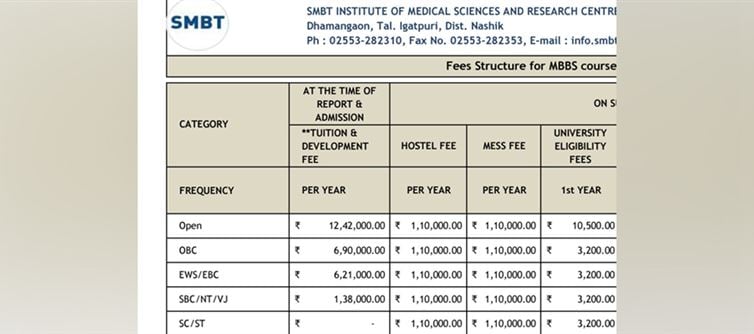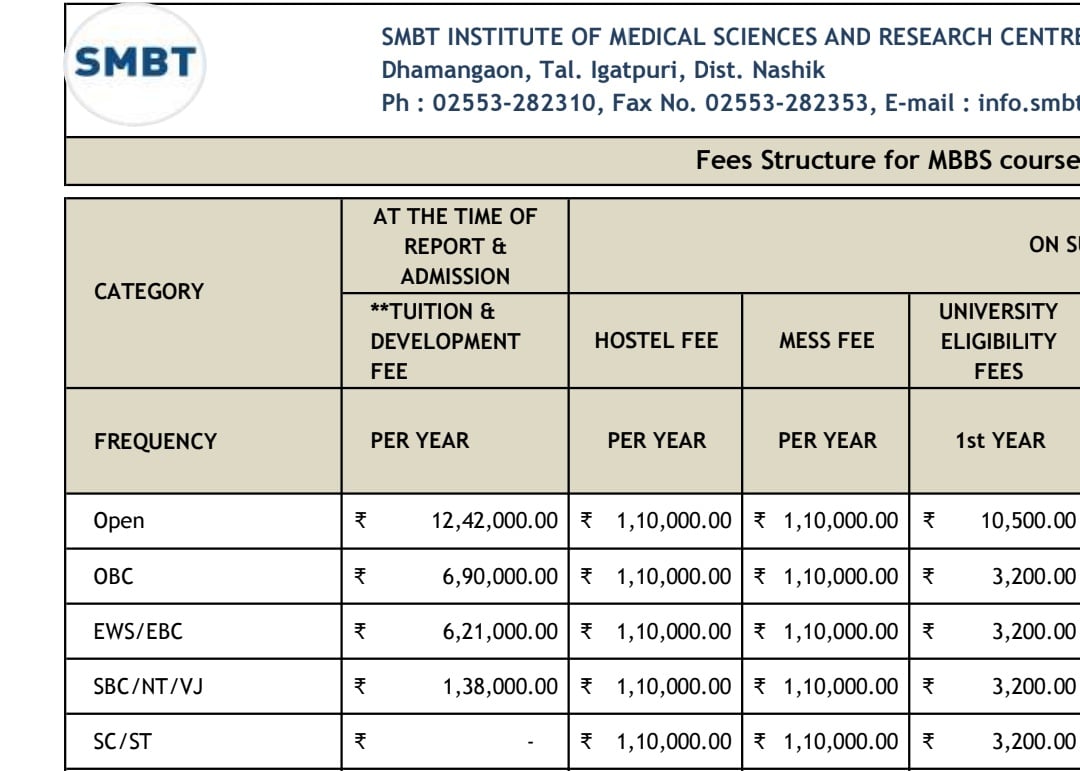
In India, securing admission to a top-tier institution is a dream, but that dream comes with a shocking price tag — especially for the General Category. Tuition fees alone can reach ₹12.42 lakh per year, totaling over ₹68 lakh for a 5.5-year program.

Meanwhile, SC/ST students pay zero, thanks to reservation policies aimed at leveling centuries of structural disadvantage. Yet some critics still insist, “Reservation is not a poverty alleviation scheme.” Ask the General Category student who scrimped, worked, and fought purely on merit — only to pay a fortune for the same seat. This is meritocracy under siege by inequality and systemic bias.
1) Merit Costs ₹68.31 Lakh
A General Category student who earns admission purely on merit must pay over ₹68 lakh for 5.5 years of education. That’s not just money — it’s a lifetime burden for most middle-class families.
2) Reservation students Study for Free
SC/ST students, benefiting from affirmative action, pay zero tuition fees. The goal is to correct historical disadvantages, but critics often misinterpret this as privilege, ignoring the centuries of systemic oppression that made such measures necessary.
3) Meritocracy or Monetary Gatekeeping?
When the price of education reaches ₹68 lakh, the system favors the wealthy, not necessarily the most talented. Merit now comes at a premium — literally.
4) A Hidden Poverty Trap
Families of General Category students often take loans, sell property, or make extreme sacrifices to afford tuition, even though their children qualify purely on merit. Meanwhile, the narrative frames reservation as “special treatment,” diverting attention from the real inequity of high fees.
5) Reservation Isn’t Handout, It’s Justice
Critics insist that reservation is not meant to alleviate poverty. True, but the contrast is stark: merit students pay lakhs, while marginalized communities are finally given a chance without financial barriers. The moral logic is clear — leveling the playing field costs less than pretending it doesn’t exist.
6) The Emotional Toll
It’s not just money. The psychological burden on General Category students — knowing they worked hard yet face financial punishment — is immense. Meanwhile, SC/ST students can focus fully on academics, leveling the playing field in more ways than just finances.
7) A System in Need of Rethink
This isn’t just about fees. It’s about the systemic inequity that burdens merit students while trying to correct centuries of disadvantage for others. India’s education system must strike a balance: preserve merit, but make it accessible without lifelong debt.
Closing Blast
The ₹68 lakh fee for merit students exposes a brutal paradox in indian higher education: hard work alone is no longer enough — wealth determines opportunity. Reservation policies are not handouts; they are corrective tools. Yet the stark contrast leaves millions of meritorious General Category students financially crippled.
India must ask itself: Should merit require bankruptcy, or can talent thrive without being punished by the system?




 click and follow Indiaherald WhatsApp channel
click and follow Indiaherald WhatsApp channel